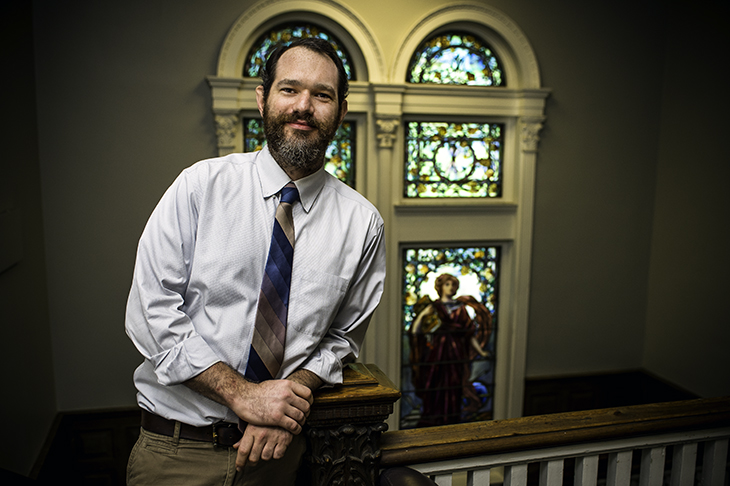Grad student wins national grant for dissertation research

Daniel Teles, a PhD student in economics, will use a dissertation grant awarded by the Corporation for National Community Service to study the effects of AmeriCorps grants to nonprofit organizations. (Photo by Ryan Rivet)
The Corporation for National Community Service awarded Daniel Teles, a doctoral student in economics at Tulane University, its only dissertation grant through the 2015 National Service and Civic Engagement Research Competition. Teles, who is a Center for Public Service Community Engaged Graduate Fellow, was the lone grantee in the dissertation category, and his study is one of only seven to receive funding in the selective, national competition that seeks to build research in the field of national service, volunteering and civic engagement.
Teles" research studies the relationship between the AmeriCorps grants to nonprofits and the amount of private donations they receive what"s known as “crowd out” in economics.
“Crowd out is the idea that some government action leads to less private action,” Teles says. “In the realm of philanthropy, it"s the idea that government funds for what we call public good would lead to fewer donations from the private sector to subsidize that.”
According to Teles, the seeds of his research were planted long before he began his studies at Tulane.
“I came to New Orleans in 2006 to do AmeriCorps with Habitat for Humanity,” Teles says. “I did that for a year and worked on their staff afterwards, so when I started reading about the existing literature about crowd out, I immediately thought about whether or not anyone has done this kind of research with AmeriCorps because it"s a very atypical form of government grant.”
Teles says AmeriCorps differs from the normal government grant in that it provides nonprofit organizations with low-cost labor, rather than a straight subsidy.
While the grant is relatively modest, Teles says it will allow him to conduct his research “much more robustly.”
Teles discovered this opportunity through the Community-Engaged Graduate Fellowship, a pilot program created by the Tulane Center for Public Service to train and support community-engaged scholars at the graduate level.
